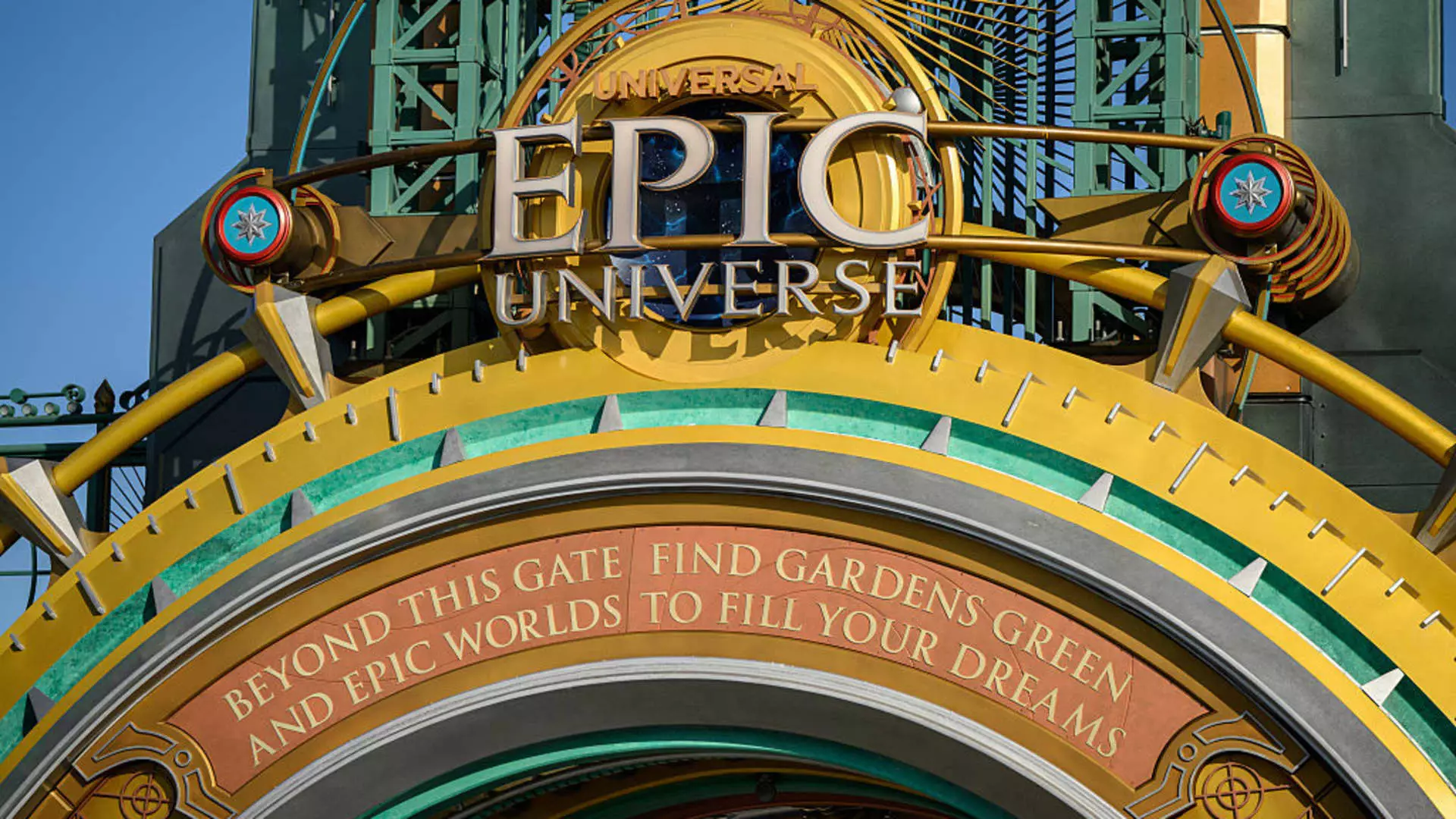Orlando has long enjoyed its status as a premier tourist destination in the United States, but the impending launch of Epic Universe signifies a pivotal transformation in this sunny hub of entertainment. With its grand unveiling scheduled for May 22, 2024, Universal’s newest theme park is not just a monumental addition to the Florida landscape; it carries the weight of 25 years of anticipation since the last major theme park was born in the area. Stretching across 750 acres, Epic Universe will introduce five themed realms that promise to redefine the visitor experience, from the magical corridors of Harry Potter’s Ministry of Magic to the pixelated excitement of Super Nintendo World.
Yet beyond the enchanting rides and whimsical settings lies a deeper, more compelling narrative: the blossoming economic opportunities for both Orlando and its visitors. As dissent often surrounds debates on thematic monopolies, it’s vital to appreciate how Epic Universe can boost not just Universal’s bottom line but also the broader local economy, enhancing the fabric of community life.
The Economic Ripple Effect
According to industry experts, more than 74 million tourists flocked to Orlando in 2023 alone, contributing to nearly half of Orange County’s total sales tax revenue. Epic Universe will undoubtedly amplify this trend. With projections suggesting it will create roughly 17,500 new jobs and generate an astonishing $2 billion for the Florida economy within its inaugural year, it’s clear that the investment—which some estimates place at $7 billion—extends far beyond Universal’s gates.
Casandra Matej, CEO of Visit Orlando, asserts that this major project will catalyze a ripple effect across the city. She’s right; when large developments materialize, local vendors, hoteliers, and restaurateurs invariably thrive. Given that Orlando is already defined by its tourism industry, the emotional and economic stakes appear encouraging. The allure of Epic Universe is more than replaceable rides; it’s a robust opportunity for symbiotic growth—the kind where stronger theme parks nurture their rivals.
Job Creation: A Boon and a Challenge
With the promise of tens of thousands of jobs emerging from the Epic Universe venture, it would be easy to paint a rosy picture of an economic paradise. However, we must critically assess job availability within a context that reflects current realities in Florida’s labor market. Snaith’s report reveals a dual reality; while economic growth is high, it also presents a challenge for lower-skilled workers who may find themselves competing against a more specialized workforce prompted by such elevated operational demands.
The number of jobs tied directly to Epic Universe’s construction—over 65,000—makes a potent statement. Yet it is crucial to ensure that the influx of service and hospitality jobs does not become a race to the bottom in wages and working conditions. If Orlando aims to sustain its economic vitality, it must welcome the new while also nurturing the old; these two narratives must coalesce seamlessly.
The Competitive Landscape
The opening of Epic Universe raises intriguing questions about competition, especially in relation to the established Disney parks just a stone’s throw away. Theme park analysts predict that rather than cannibalizing existing attractions, Epic Universe may invigorate popularity across the board, resembling the historical scenarios like Disneyland Paris, which ultimately expanded local tourism.
While optimistic, this view may overlook essential dynamics at play in Orlando’s tourism system. Will there be a pressure cooker affect where audiences feel torn between experiences? Or can Disney and Universal collaborate in the future to create a complementing narrative around joint marketing strategies? The outcome remains to be seen, but one fact is certain: Epic Universe’s presence fundamentally alters the paradigm, and wise engagement approaches will have a lasting impact on tourists’ perceptions.
Infrastructure and Community Development
In proximity to Epic Universe, increased development has been noted—new hotels, restaurants, and housing quickly sprouting from the ground. While these are undoubtedly growth indicators, such shifts also present complex challenges that are quintessentially American. Infrastructure must be adapted to support inflating visitor numbers; traffic congestion, quality of life, and environmental considerations will become regrettably pivotal conversations. As the community transitions with growth, attentiveness to sustainability is crucial.
If Orlando is to evolve as a model city, care must be taken that it does not replicate the damaging growth models seen elsewhere; unchecked commercial development can burden local communities and erode cultural identity. The area’s intrinsic charm hinges on our ability to marry thrilling entertainment with responsibility toward residents and the environment.
The opening of Epic Universe could indeed herald a golden age for Orlando’s tourism landscape. Still, maintaining a level-headed perspective is essential; we must ensure that economic prosperity does not overshadow the very elements that make this community a beloved destination.

